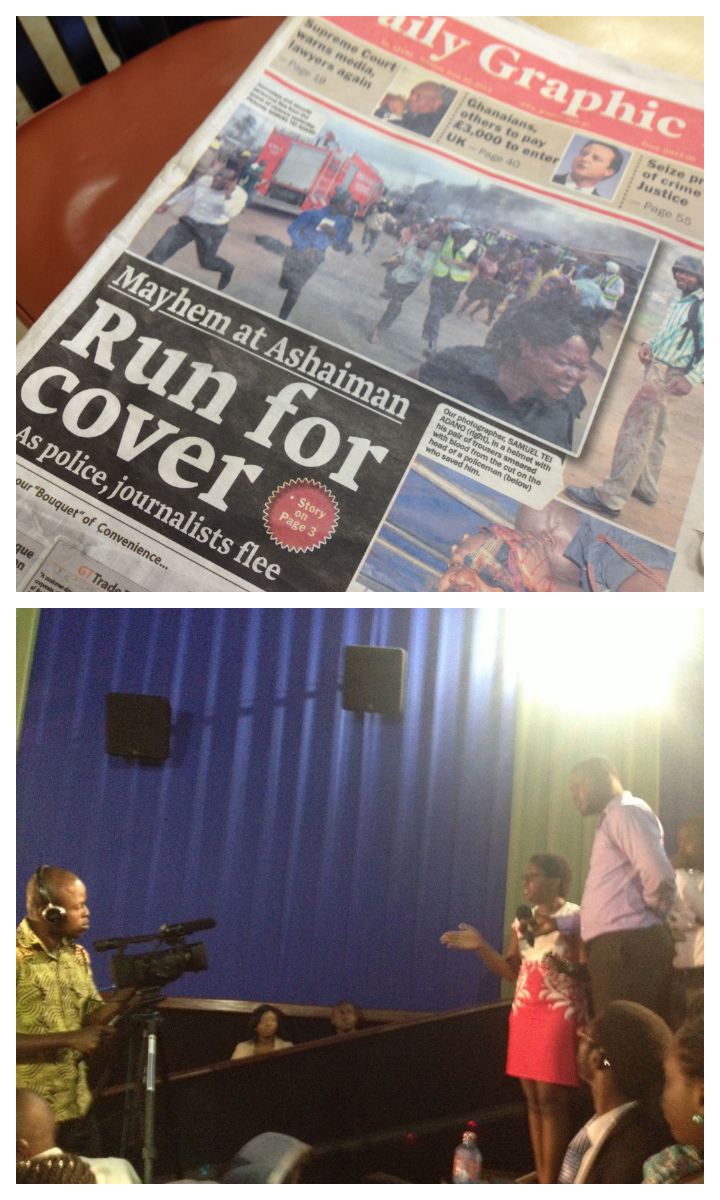
On Monday, drivers in the town of Ashaiman started a protest against the horrible state of the roads in the community. Daily Graphic reports that as early as 5 am, protesters had blocked the roads and by 6 am they had reahed the Tema motorway, taking over toll booths and blocking traffic to and fro Accra.
What is Ashaiman? It is a residential town where many workers of Tema (the industrial city) and Accra (the capital of Ghana) live. Although rent is cheaper here than in the neighbouring cities, many of Ashaiman’s inhabitants have to endure long hours of commuting. Although its population is twice that of Tema, it was only 5 years ago it got its own municipal district and local assembly.
Every day on my way home to Tema, I have to cross the traffic queues leading to Ashaiaman that is situated on the other side of the Tema motorway from where I live. Only crossing Ashaiman traffic many times takes upwards 20-30 minutes. As I later breeze in the opposite direction, I see people walking towards Ashaiman moving faster than the traffic all the way to the central part of Tema.
The MP of the area, Alfred Agbesi and the Municipal Chief Executive, Numo Adinortey Addison were accused by the demonstrators of not doing their jobs – providing better roads! – but could, according to the same newspaper, “not be reached for their comments”. However, the newspaper also reported “policemen and soldiers managed to bring the situation under control after 4 hours of violent protest…[and] would offer 24-hour patrol to residents and commuters”.
***
Today, I took part in the internationally broadcast BBC Africa Debate together with a delegation from Ashesi University College. The background of the debate “Can the middle class drive growth?” was both Obama’s travel to the continent, supposedly to augment trade, and the African Development Bank’s report on the New African Middle Class (PDF). Interestingly, the AfDB’s definition is people who spend 2-20 USD/day per capita. That means, just after the poverty level (less than 2 USD/day) comes now “middle-income”. This was debated along with what government needs to do and what we as individuals can do.
During the debate, the recent Ashaiman demonstration, called “the Ashaiman Spring” by some, was not mentioned, but maybe it should have been? Here we have people who have jobs, pay taxes, dutifully go to work everyday even when it means hours in traffic morning and evening – but not benefitting much.
All public amenities in Ghana need back-ups: water (buckets and poly tanks), education (private school if you can afford), health (herbal traditional medicine or private health insurance), electricity (candles, batteries and generators), waste collection (burning in your backyard), but poor roads are difficult to create your own private alternative for…
The representative from the AfDB concluded the debate by graciously admitting their definition of middle-class only talks about spending, but does not include living costs. We are many who know by experience that living a middle-class life in Ghana demands much more than a middle-class income and plenty of patience…
Listen to Ghana Connect on JOY FM Friday 28 June at 6.30- 7.00 PM for more on the “Ashaiman Spring” and BBC, 7 PM GMT for the full debate!
